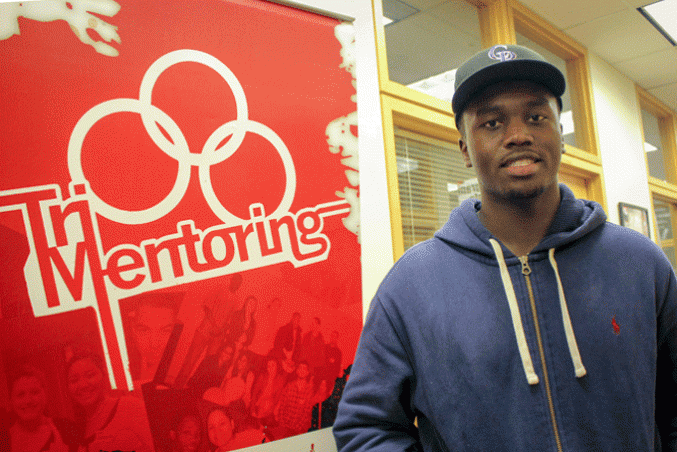By Serena Kwok
Located inside the library building, Ryerson’s Tri-Mentoring program is as friendly as they promote themselves to be. Students lounge inside the office, welcoming everyone who walks in.
“Tri-Mentoring is a family oriented place where people are always willing to give advice and help other people out,” said Mohamed Moustapha, a second-year business management student. “It’s an environment where you can be productive
because you’re around like-minded people — so that’s something that really drew me in.”
The program has four main streams for students: peer mentoring, career mentoring, first generation and access TMP.
In peer mentoring, first year students are paired up with upper year students who provide guidance throughout the transition into university.
Mariam Hashemi, the facilitator for the Tri-Mentoring program, said that the time commitment is minimal for first year students. “Whatever you’re planning to do in your social life, this is a blip,” said Hashemi. “This will give you … job opportunities, networking, getting to know people in university [and] access to funding.”
For third and fourth year students, they have the option to enroll into the career mentoring program and be matched up with a mentor from their industry. They are given constructive criticism and encouragement to help reach their goals.
There are others that face a unique challenge, as they are the first generation in their family to attend a post-secondary institution. Tri-Mentoring provides a specific program for these students. One notable part of the first generation program is that students’ parents are invited for a campus tour and given the university experience they never had.
Tri-Mentoring’s most recent program, Access TMP, focuses on community support, mentoring and career opportunities for students with disabilities.
“We’re making the program more inclusive – Tri-Mentoring has never been exclusive in terms of saying that our programs are only for certain types of people,” said Hashemi. “We’re becoming intentionally inclusive by saying, ‘If you’re a student with a disability come [or] if you’re a first generation student — come join us.’”
Hashemi said that Tri-Mentoring’s next goal is to reach out to the LGBTQ community and aboriginal students. By creating an environment for all students, it will create an opportunity to help connect with those who face the same challenges.
For Moustapha, he said that the program was life-changing. “You come here and you have a lot of people who are very motivated and it rubs off on you,” said Moustapha. “Trust yourself — that’s the one thing [here] I’ve learned that is the most important.”













Leave a Reply